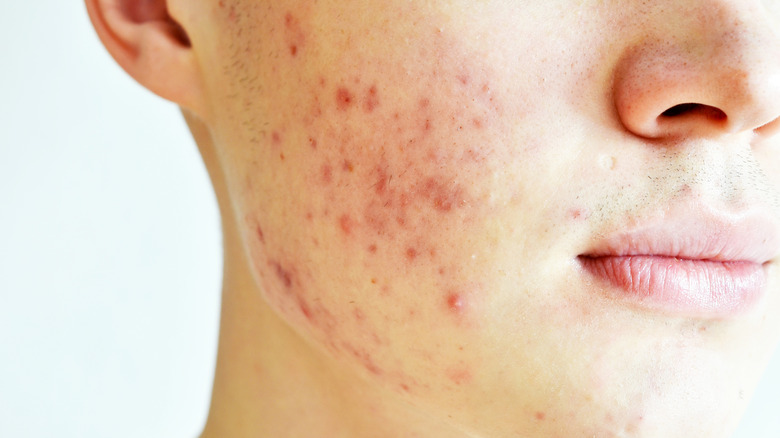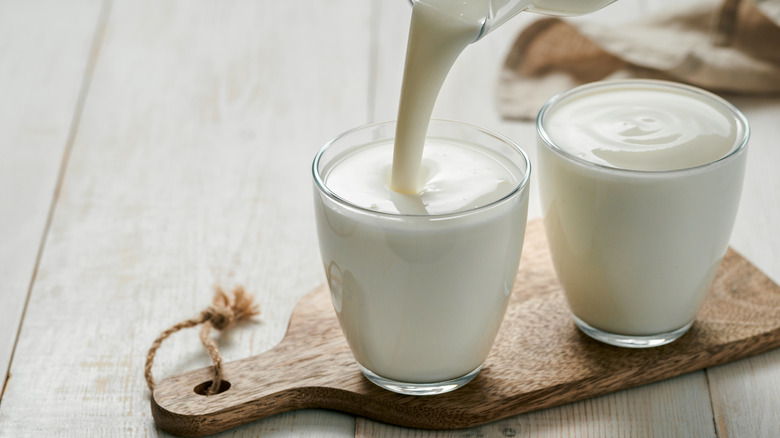The Unexpected Connection Between Gluten And Acne
Being plagued by acne can be extremely frustrating, especially if you've tried everything you can to get rid of the unwanted pimples on your skin. The Mayo Clinic describes acne as an inflammatory condition that occurs when pores become clogged with bacteria, oil, and dead skin cells. Factors that can increase acne include stress, hormones, and dietary choices.
Some people claim that switching to a gluten-free diet has helped them rid their skin of acne, according to Healthline. Altering the foods you eat can be a holistic way to mitigate acne, along with other lifestyle changes.
Going gluten-free has been a trend for several years, with some people making a conscious choice to take gluten out of their diets. Other people live with celiac disease and require gluten-free diets because they can't process the dietary substances (per Healthline). You may be surprised to learn that gluten is not a singular item, but rather a collection of proteins that appear naturally in grains like barley, rye, and wheat. The proteins that make up gluten have elasticity that has earned them the nickname of "bread glue" — this is because of their ability to hold together items like bread, pasta, and even salad dressings. While gluten can bind food items, can it clear acne?
Dietary changes to decrease acne
Unfortunately, there isn't any scientific evidence to back up claims that going gluten-free can clear acne, per Healthline. However, there are other dietary and lifestyle changes that can help rid your skin of acne. Dairy products and whey protein, which is often found in protein powders, can increase the prevalence of acne. Foods with high glycemic index ratings, like white rice and potatoes, have also been linked to acne. While the proteins that comprise gluten haven't been found to have an impact on acne, carbohydrate-rich foods like bread, pasta, and chips have been associated with acne (via Mayo Clinic).
Luckily, many foods have been found to actually improve acne when eaten on a regular basis (per MedicalNewsToday). Acne-improving foods include items with lots of omega-3 fatty acids, like salmon, spinach, kale, flaxseeds, nuts, soy, wild rice, and even grass-fed beef. Eating a plant-based diet with lots of whole foods can be a dietary avenue for reducing acne as well. These foods also increase energy, assist with weight loss, and decrease your risk of conditions, like heart disease and diabetes, reports Everyday Health. Being intentional about the foods you eat and paying attention to how they make you feel — including how your skin responds — can also help (via The Beet).


